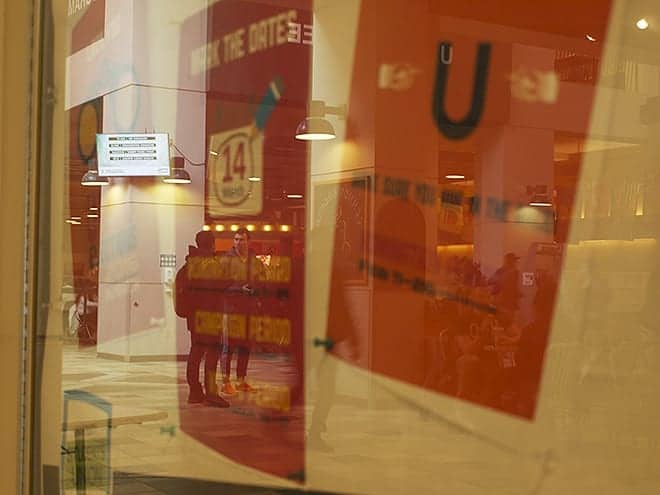The young and the voteless

Elections Canada seeks to attract non-voting youth
Emma Godmere
CUP Ottawa Bureau Chief
OTTAWA (CUP) – As youth voter turnout remains at an historic low, Elections Canada is looking for new ways to reach out to the thousands of disengaged young Canadians.
The independent agency, which ultimately hopes to encourage more young people to vote as part of its Youth Research Action Plan, is commissioning a new survey that would involve 2,500 Canadians between the ages of 18 and 34, according to Postmedia News.
While total voter turnout in the October 2008 federal election clocked in at an all-time low of 58.8 per cent, the estimated voter turnout of eligible voters aged 18-24 was an even more dismal 37.4 per cent, according to a parliamentary report.
Why, when so many young people are engaged in other political affairs and debates, do so few youth turn up to vote in federal elections?
Robert Asselin, assistant director at the University of Ottawa’s Graduate School of Public and International Affairs, said the complex question doesn’t just have one answer.
“I think generally, we can certainly observe a decline in interest in institutional democracy,” he suggested. “I think there’s a huge disconnect between what politicians are saying or the way they are conducting their business and the way the youth see how our democracy should be expressing itself.”
Asselin also pointed to recent and ongoing attack ads and generally negative exchanges between parties as aspects young people simply don’t want to see in politics.
“When you look at what Obama was able to accomplish in his [2008 U.S. presidential] campaign, you can see how one is still able to reach [out],” he said. “There’s hope that when a candidate like this comes, people can actually kind of feel the appeal and involve themselves and be engaged … but in Canada we’re in this situation where no national leader has real charisma and appeal to young people.”
And, according to Asselin, this can yield dangerous results.
“We’re approaching a situation where it’s very dangerous for our democracy because when you have almost one out of two people [who aren’t] voting, because either they don’t think it’s relevant or they don’t like what they are hearing – when you elect government with that many people, it’s dangerous,” he said.
“It’s not a sign of a healthy democracy.”
Asselin is doubtful that one independent agency alone could solve the youth engagement issue.
“I don’t think an organization like Elections Canada can solve it. I think it can help … [by] trying to be more present, for example, on campuses and reaching people through the Internet or social media because that’s where most young voters are right now,” he suggested.
“But still, it’s a long shot … I think they are trying the right thing and they should try to shore up the vote, but it will be difficult.”
There may not be that much time for Elections Canada to reach out to youth before the next election, however. While the latest EKOS poll released Jan. 27 suggested only 14 per cent of Canadians believed the next election should be held as soon as possible, federal parties are showing signs of preparing for a trip to the polls as soon as this spring.
One of the next opportunities will come when the Conservatives release their 2011 federal budget, set to occur next month.
“I always take it with a grain of salt when people say they don’t want an election because it’s only during an election that you see the issues addressed or you see the real debates happening,” said Asselin.
“I guess it’s always the case that before an election – nobody wants one, but once they realize they have an election, they have to make up their mind and they’re tuned into the process.”
Asselin went on further to suggest that while Canadians’ feelings may be up in the air, most political leaders know – and are getting ready for – what’s around the corner.
“My own analysis is that most parties think that it would be time to go to the people. I think the Liberal Party certainly feels that way … [after] two years as leader of the opposition, I think Ignatieff feels it’s time now to go,” Asselin said, also noting that while the Bloc Quebecois are currently in a strong position, the NDP may be more reluctant to rush to the polls.
“For Harper this time, the expectation is that he needs to get his majority and it seems a big challenge for him right now to get those extra seats,” Asselin continued. “So all parties, I think, have obstacles to their ultimate goals.”
And it may very well be because of these obstacles that Asselin himself is reluctant to make an election prediction.
“The funny thing is that the election campaign matters. You can absolutely have a very, very different result than when you started the campaign,” he said, noting Kim Campbell’s 10-point lead over Jean Chrétien going into the 1993 election, which Chrétien won overwhelmingly and launched a new Liberal majority in Parliament.
“A campaign on its own has its course, and you never know. I think a majority is unlikely, but it’s possible … it could be much tighter than people think,” Asselin said. “It will be interesting – that’s what a campaign is for. You go out there, you go to the people, you make your argument, and anything can happen.”

![[5]lessig](http://www.carillonregina.com/wp-content/uploads/2011/02/5lessig-1024x768.jpg)








